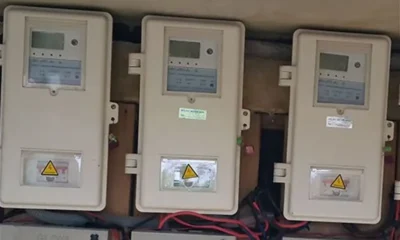The Nation
BREAKING: Fed Gov’t announces VAT exemptions for diesel, feed gas, CNG LPG, others

In a bid to enhance Nigeria’s energy sector, President Bola Tinubu’s administration has rolled out new fiscal incentives, including Value Added Tax (VAT) exemptions on essential energy products and infrastructure.
The move is designed to lower costs in the industry, encourage investment in cleaner energy alternatives, and drive economic growth.
The VAT exemptions cover Diesel, Feed Gas, Liquefied Petroleum Gas (LPG), Compressed Natural Gas (CNG), Electric Vehicles, Liquefied Natural Gas (LNG) infrastructure, and Clean Cooking Equipment.
Additionally, new tax reliefs for deep offshore oil and gas production were announced under the Notice of Tax Incentives for Deep Offshore Oil & Gas Production.
Wale Edun, the Minister of Finance and Coordinating Minister of the Economy, unveiled the measures on Wednesday, explaining that they form part of the VAT Modification Order 2024, as well as the Oil & Gas Companies (Tax Incentives, Exemption, Remission, etc.) Order 2024.
These fiscal policies are expected to stimulate investment in Nigeria’s oil and gas sector, while also promoting the adoption of cleaner energy solutions.
“These measures are designed to lower the cost of living, bolster energy security, and accelerate Nigeria’s transition to cleaner energy sources.
“In addition, the Notice of Tax Incentives for Deep Offshore Oil & Gas Production provides new tax reliefs for deep offshore projects.”
According to the statement, “This initiative is aimed at positioning Nigeria’s deep offshore basin as a premier destination for global oil and gas investments”.
“These reforms are part of a broader series of investment-driven policy initiatives championed by His Excellency, President Bola Ahmed Tinubu, in line with Policy Directives 40-42,” it added.
“They reflect the administration’s strong commitment to fostering sustainable growth in the energy sector and enhancing Nigeria’s global competitiveness in oil and gas production.”

































